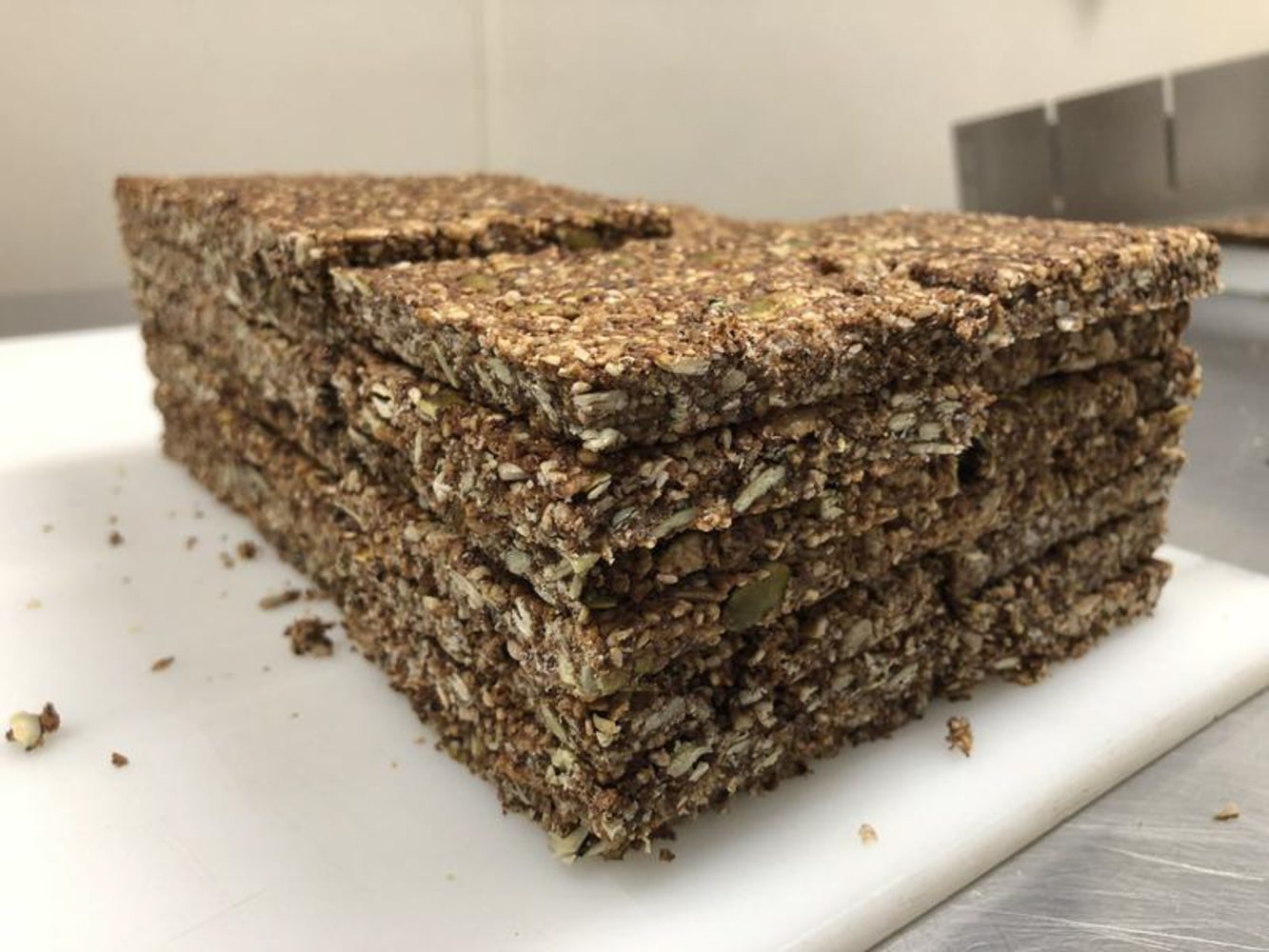Gluten-free, soy-free, dairy-free, corn-free, GMO-free are words that all jump off the wrapper of the LivBar, lined up on a playbill of claims to fame. They are also honey-free, to ensure a vegan-friendly status. Coffee Maple Cacao, Lemongrass Cherry Matcha, Blueberry Vanilla Kale, and Raspberry Kale Maca are some of the accompanying exotic flavors that wait in the wings. LivBars sounded too fancy, and I wasn’t interested, especially with the prevalence of poseurs in the world of “natural” foods today. However, the box of samples was sitting at headquarters in need of an editor: sometimes, you have to take one for the team.
I unwrapped the first package and what looked like a block of birdseed slid from the wrapper. So far, no good. I broke a corner off each of the five flavors, not wanting to go all-in just yet. Ginger Lemon Turmeric seemed the least potentially offensive to my palate. Not bad; quite pleasing, in fact. The rest of the flavors followed suit, with evolving layers of subtle zing after each bite. The taste factors are complex in a good way, never overpowering, yet satisfying. The bars’ not-too-crumbly, non-greasy composition makes them an easy choice for the trail, and their approximate 3-inch square size with a fairly flat 1/4-inch width makes them extremely packable for any outdoor endeavor.
My opinion partially swayed, It was time to move on to the label. The only suspect non-food ingredient present was organic natural flavor. Otherwise, it was clean: seeds, grains, fruits, and vegetables, with coconut oil as a binder, coconut sugar for sweetness, cinnamon, and a pinch of Himalayan salt—energy food in its truest form.

I found myself questioning the “compostable wrapper” claim, especially as the inside was a thin layer of metallic film. LivBar’s Marketing Director Stephanie Roberts explained that they source some of their packaging materials from NatureFlex, utilizing multiple layers. “The shiny one is a “Metallised Compostable Film” and maintains the same level of compostability as the other layers.” Stephanie said the results could vary when I asked how long it would take to home-compost the wrapper. It could be as soon as 8-12 weeks, while “one of their Brand Ambassadors tested the wrappers in her home compost and had results after eight months,” posting the results on Instagram.
LivBar got me thinking about the food revolution as it pertains to the last three decades, and the evolution of organic ingredients. Superfood and ancient grains are more recent additions, emblematic of an effort to capture nutrients lost to us as we transition more and more to pre-packaged goods. These efforts are not wasted, and it is clear that in LivBar’s case, the company’s real-food ethos is authentic. “Nutritionally balanced, low-allergen bars…baked in [their] own solar-powered facility” in Salem-Oregon result in organic goodness to meet the needs of most foodies out there, even in the backcountry. Consider me sold.
$33, 12/pack, livbar.com
Our No Compromise Clause: We carefully screen all contributors to ensure they are independent and impartial. We never have and never will accept advertorial, and we do not allow advertising to influence our product or destination reviews.


